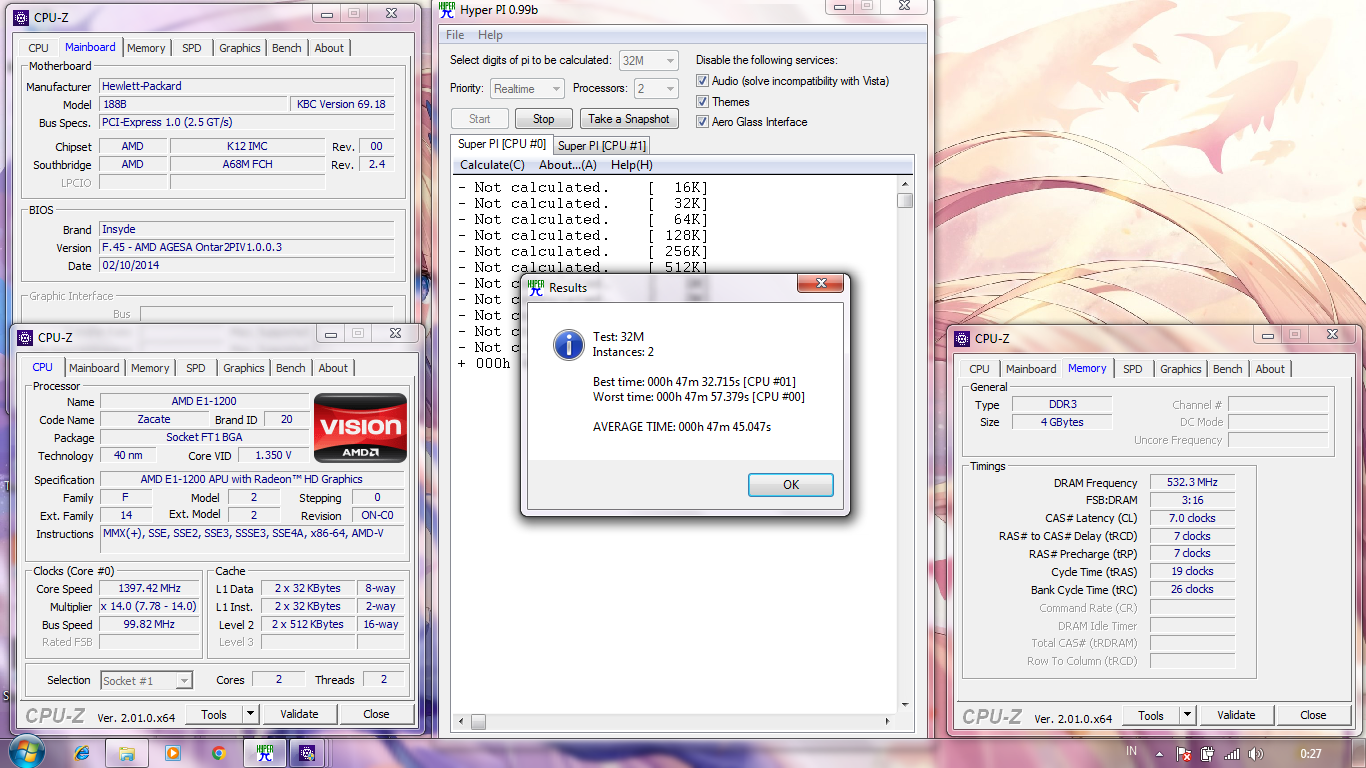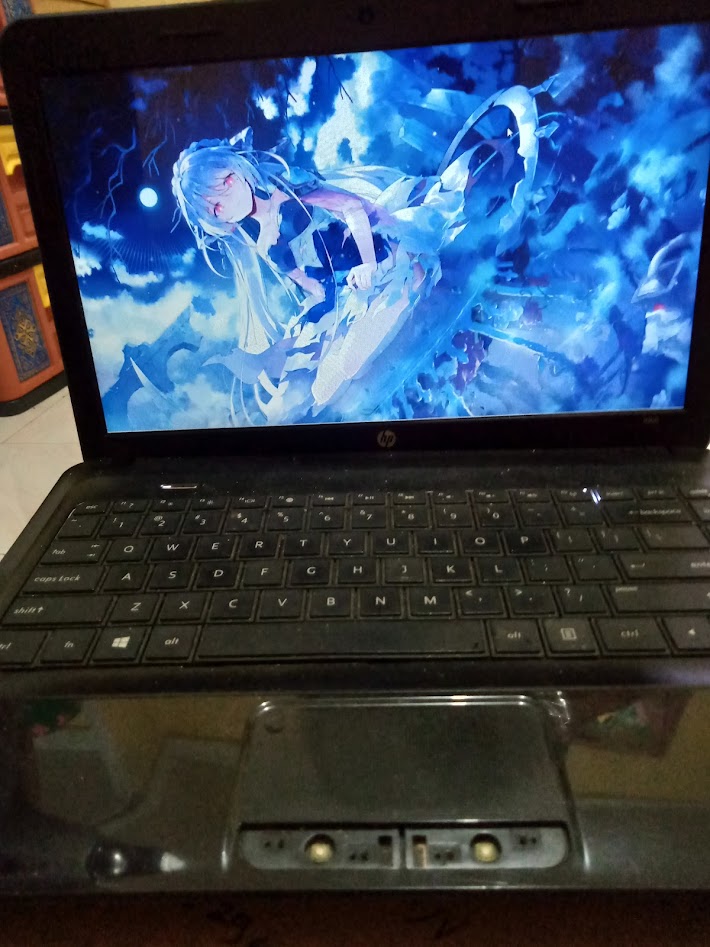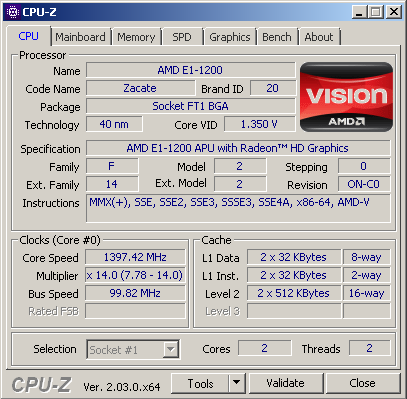HyperPi - 32M score 47min 45sec 47ms with a E1-1200
Thursday, 01 January 1970 07:00 | Update at null
Media Gallery
Screenshot

Device, Setup, etc



URL
https://bit.ly/3pvBxoyInformation Detail
Hardware: AMD E1-1200
Specs:CPUID : AMD E1-1200 APU with Radeon(TM) HD Graphics
Architecture : x86
Codename : Zacate
L3 Cache : -
Clock : 1.4GHz
Core/Thread : 2/2
TDP : 18W
Technology : 40nm
Socket : FT1 BGA 413-Ball
IGPU : AMD Radeon HD 7310
See more specification...
Software: HyperPi - 32M
Score: 47min 45sec 47ms
About: HyperPi - 32MHyperPi – 32M is a legendary benchmark designed to measure CPU stability and performance, particularly in long-term testing and heavy-duty mathematical computation-based processing. Based on SuperPi, HyperPi enables the calculation of pi to 32 million decimal places, making it one of the most intensive single-threaded tests available.
In 32M mode, the workload is significantly heavier than the 1M version, requiring much longer execution times and placing greater strain on components such as the processor, memory, and cooling system. This makes it the top choice for overclockers and hardware enthusiasts looking to test overclock stability under extreme conditions or perform stress tests on new systems.
HyperPi allows for the execution of multiple instances in parallel, but for the 32M test, often only one CPU core is fully utilized, making it an ideal tool for evaluating single-core performance in high-load, sustained scenarios.
This benchmark is highly sensitive to various technical factors such as memory speed and latency, L1/L2/L3 cache efficiency, and power stability. As a result, HyperPi 32M is frequently used as a valid benchmark in international overclocking competitions and for validation testing on modified systems.
Given its complexity and lengthy test duration, the results from HyperPi – 32M not only reflect how fast a processor operates but also how stable and reliable the system is in handling sustained computational loads. This makes it one of the most respected benchmarks and remains relevant despite being considered a classic.
Released in 2012 as part of the Brazos 2.0 family, the AMD E1-1200 is a power-efficient processor aimed at entry-level laptops. It has a 2 core and 2 thread configuration with a fixed clock speed of 1.4 GHz, with no support for Turbo Core technology. Built with a 40nm fabrication process, the E1-1200 has a TDP value of 18 watts-efficient enough for portable devices that emphasize low power consumption and longer battery life. Despite its limited performance, the E1-1200 was a popular choice in its day thanks to its affordable price and ability to handle light computing needs.
One of the main advantages of the AMD E1-1200 is the integrated Radeon HD 7310 GPU, which offers better graphics performance than Intel's entry-level graphics solutions at the time. This GPU has the ability to play HD resolution videos smoothly, as well as run light games such as Counter Strike 1.6, Plants vs Zombies, or other casual games with minimum graphics settings. That said, this combination of CPU and GPU is not intended for heavy-duty work such as video editing, 3D rendering, or modern gaming. Overall performance is more optimal when used for tasks such as browsing, streaming videos, accessing social media, typing documents, as well as basic office applications.
However, it should be noted that the AMD E1-1200 is less suitable for heavy multitasking, especially in modern operating systems like Windows 10. With a low clock speed and no Boost feature, users may experience lag or limitations when opening multiple applications at once. In tests using the HP 1000 1b05au laptop, this processor was paired with 4GB DDR3 single channel RAM (2 DIMM slots) and tested on Windows 7, Windows 8, and Windows 10 operating systems. The results show that the most optimal performance is achieved on Windows 7 or Windows 8, while in Windows 10 the system tends to be slow although it can still be used for basic needs. As such, the AMD E1-1200 can still be relied upon as a power-efficient and inexpensive solution for users with very light computing needs.
Hardware Detail:
Device: HP 1000 1b05au
RAM: 4GB DDR3 Single Channel 2 DIMM
OS: Windows 7, Windows 8, Windows 10
* Not Avaiable
